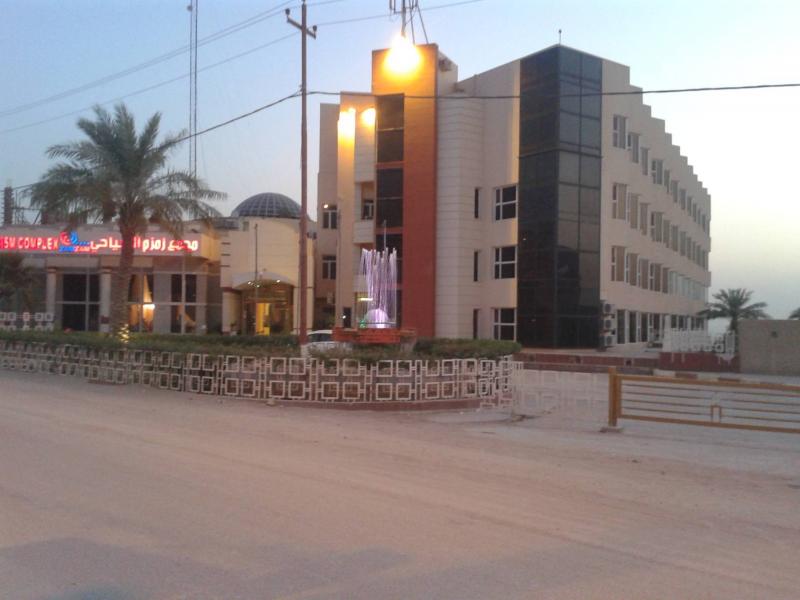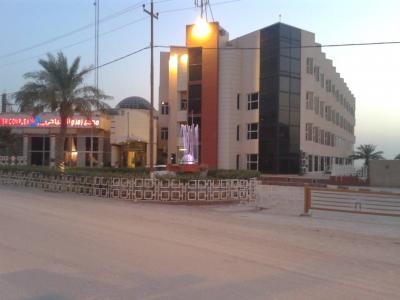The Najaf Province is implementing a plan for the visit to Imam Ali ibn Abi Talib, as announced by the province's spokesperson, Ahmed Al-Fatlawi. He confirmed that "the Najaf Province held an extensive meeting that included the Border Guards Command, Najaf Police Command, a representative from the Central Euphrates Operations Command, all security agencies, as well as service departments such as Electricity, Health, Education, and other related departments from water and sewage." All of them participated in the meeting chaired by Najaf Governor Yusuf Kanawi.
The preparations are not limited to security, service, and health aspects in Najaf, as there are also preparations in the hotel and restaurant sectors. "Their association operates as a crisis cell with the local government to meet the needs of visitors and avoid various incidents," according to the head of the hotel and restaurant association in Najaf, Saeb Abu Ghneim.
Abu Ghneim confirmed that "all tourist and non-tourist hotels, around 270 in total (18 of which are 5-star, and the rest range from 3 to 4 stars), are fully prepared to welcome visitors. However, homes are prepared before hotels for accommodation, catering, and providing all the needs of the visitors." He noted that "the main causes of fires are typically due to electrical short circuits, as an electrical device is used that the power point cannot handle without the hotel owners' knowledge, while the hot weather also contributes to fire incidents."
Regarding the increase in hotel prices during the visit, he explained that "the hotel and restaurant sector, as well as commercial markets, have a season to rely on, which is common in all cities worldwide, including Najaf. Therefore, there is an increase of about 10 to 15 percent, but this visit is considered normal." He indicated that "the prices for 5-star hotels do not exceed 150,000 dinars per person, while 3-star hotels are around 50,000 dinars per person. These prices include three meals, and if the prices are unsuitable for customers, there are Hussainiyahs and houses open to visitors. Meanwhile, the Abu Fadhl Al-Abbas courtyard can accommodate 100,000 visitors for free, with services better than 5-star hotels."
As for the nationalities of the visitors coming to Najaf, "Iranian visitors are at the forefront of the numbers, but this year might see competition from Pakistanis and Afghans, who have also been allowed to visit, and they are expected to come in large numbers, as well as from Lebanon despite the current circumstances in the country. There are also considerable numbers coming from the Gulf countries, Bahrain, and Saudi Arabia, who typically stay for several days," says Abu Ghneim.
At this time, the General Directorate of Civil Defense has taken all necessary preparations, according to the media officer of the General Directorate of Civil Defense, Nawwas Sabah Shakir. Shakir explained that "the first key point is securing adequate human resources from the civil defense directorates of all kinds, composed of the finest trained personnel capable of handling various incidents efficiently and adeptly."
The second point is to secure modern mechanical capabilities, including specialized firefighting vehicles and supportive ones, as well as modern small firefighting vehicles that can maneuver quickly and reach incident locations to avoid crowd congestion. Additionally, firefighting vehicles are designated for hotels and high-rise buildings with dual use (firefighting/rescue).
Regarding the third point, Shakir noted that it relates to "spreading preventive awareness, which the directorate considers one of the most important points of focus. Avoiding incidents is better than dealing with their consequences, so the directorate is keen on continuing to spread preventive awareness to avoid incident causes." He attributed the causes of incidents to several factors, including "neglecting safety and security conditions in hotels, commercial markets, or the mourning processions that use heat sources for cooking, particularly gas cylinders and firewood, due to their combustion risks as evidenced in previous visits."




